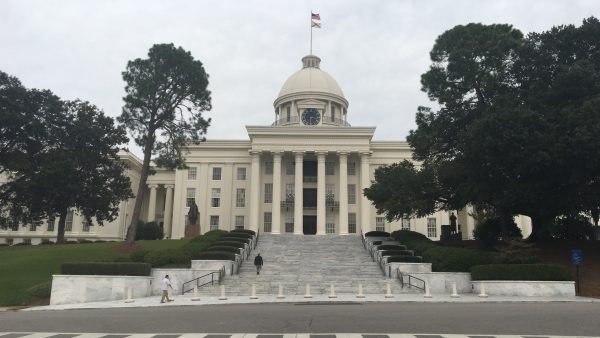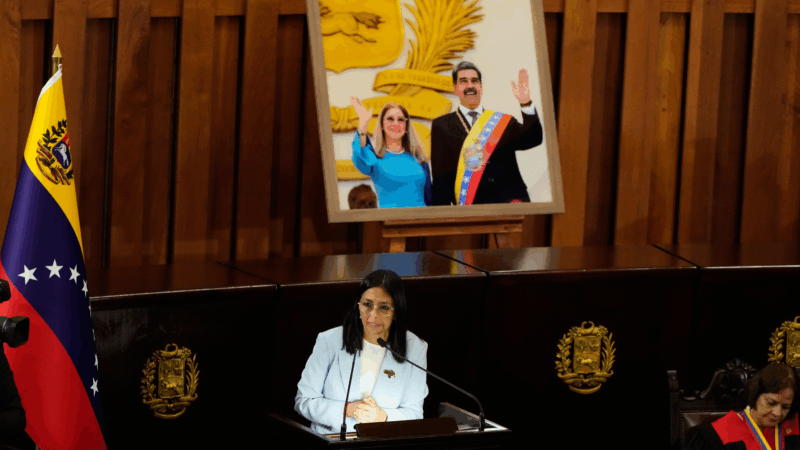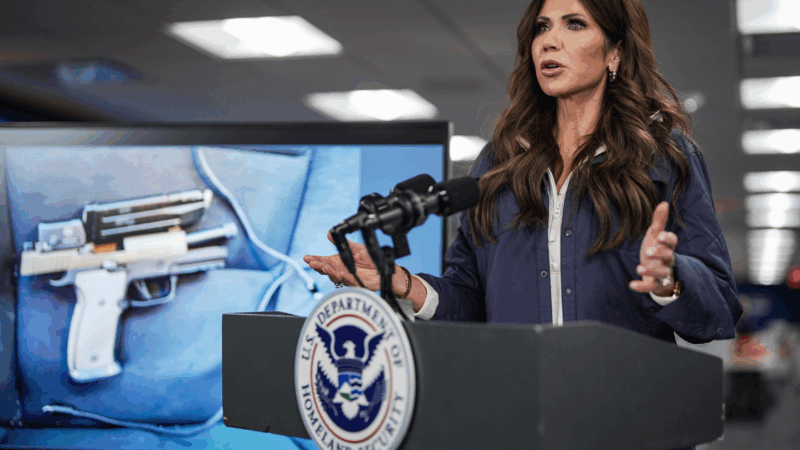Alabama Lawmakers Return To Pass Budgets After Extended Coronavirus Break
Alabama lawmakers go back to Montgomery Monday, leaving them just two weeks to wrap up the legislative session after the coronavirus pandemic prompted an extra-long spring break. With the time left, Republican leaders plan to focus primarily on the state’s budgets. That’s tricky, as the economic fallout from the outbreak is still unfolding.
The legislature’s first attempt at charting a fiscal course through the coronavirus era came Tuesday, in the Senate’s General Fund budget committee. Lawmakers sat apart from each other, with some wearing face masks. The committee’s chairman, Republican Senator Greg Albritton, said things look different now than when the session started in February.
“We are now caught in a vortex of significant financial changes with little time to analyze and plan,” Albritton said.
Despite the economic uncertainty, the $2.4 billion dollar General Fund budget passed the committee. It’s $167 million larger than the current budget, although it’s still less than what Governor Kay Ivey suggested before the pandemic. Most agencies are level-funded. Raises for state workers and teachers probably won’t happen, but the budget does increase funding for Medicaid, the Department of Public Health, the Department of Mental Health and the prison system.
“There’s going to be no danger of any kind of proration in the General Fund budget this year,” Albritton said.
Proration is across-the-board cuts when money comes up short. Albritton said that revenue has been coming in above projections and some agencies have unused money.
Republican Senator Arthur Orr chairs the Senate committee overseeing the education budget. He wasn’t overly concerned either.
“Will we see decreases in revenue? Yes,” Orr said. “But it’s not an extreme cause for alarm.”
Orr said state coffers will look really bad initially because the deadline for filing income tax returns has been pushed back until July 15th. The education budget depends largely on income and sales tax, meaning it’s more susceptible to downturns, but Orr said he expects level funding for education, maybe a little more, because there are hundreds of millions of dollars in reserves. Officials could also tap into a fund for technology and capital projects that’s been allocated, but not spent yet.
“That would certainly be a buffer for any calamities that may be coming our way,” Orr said.
Orr said lawmakers should pass the budgets on schedule to give schools and state agencies time to plan. Not all lawmakers agree.
“It’s totally irresponsible and it’s not good public policy,” Democratic Representative Anthony Daniels said. He’s the House minority leader.
Daniels said there is not a clear enough picture of the virus’ impact on tax revenue. He said many businesses shut their doors because of COVID-19, plus there’s that delay with income taxes. Daniels would prefer passing the budget in a special session later this summer after more numbers come in. He said Republicans’ financial outlook is too rosey and adjustments will have to be made anyway.
“It’s just a lot of unknowns, a lot of questions, but not a whole lot of answers,” Daniels said.
Lawmakers are required to finish by May 18th. It’s an end to the session few legislators probably imagined when they first met three months ago.
Israeli strikes kill 23 Palestinians as Gaza ceasefire inches forward
Hospitals in Gaza said Israeli strikes killed at least 23 Palestinians Saturday, one of the highest tolls since the October ceasefire aimed at stopping the fighting.
With decades-long restrictions lifted, a Pakistani brewery has started exporting beer
Drinking is illegal for Pakistan's Muslim majority, but Murree Brewery's beer has long been available to non-Muslims and foreigners there. Now it's being exported to the U.K., Japan and Portugal. Is the U.S. next?
A red hat, inspired by a symbol of resistance to Nazi occupation, gains traction in Minnesota
A Minneapolis knitting shop has resurrected the design of a Norwegian cap worn to protest Nazi occupation. Its owner says the money raised from hat pattern sales will support the local immigrant community.
Want to get stronger? Start with these 6 muscle-building exercises
If you're curious about starting a resistance training routine and not sure to begin, start with these expert-recommended movements.
Venezuela announces amnesty bill that could lead to release of political prisoners
Venezuela's acting President Delcy Rodríguez on Friday announced an amnesty bill that could lead to the release of hundreds of prisoners detained for political reasons.
DHS keeps making false claims about people. It’s part of a broader pattern
Trump administration officials have falsely linked Alex Pretti and Renee Macklin Good to domestic terrorism. It's part of a larger pattern by the Department of Homeland Security.








